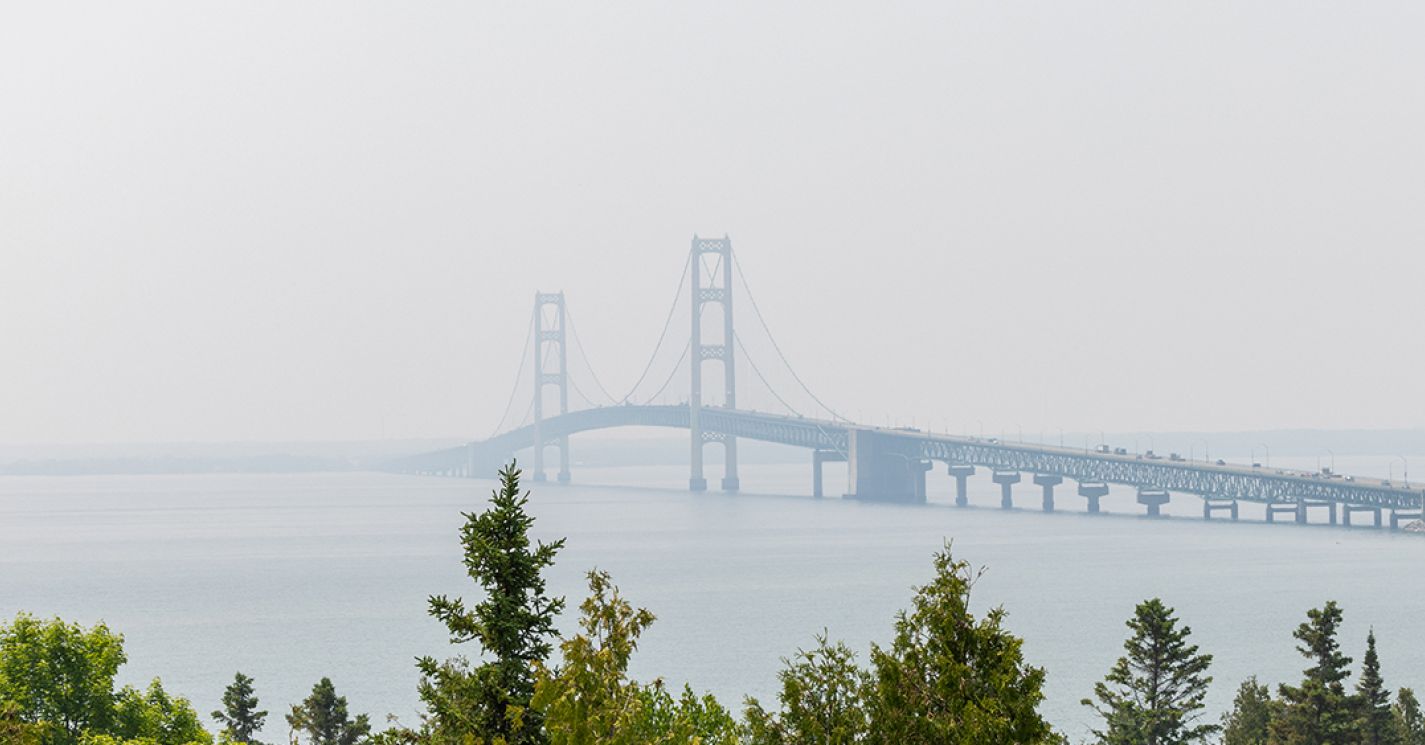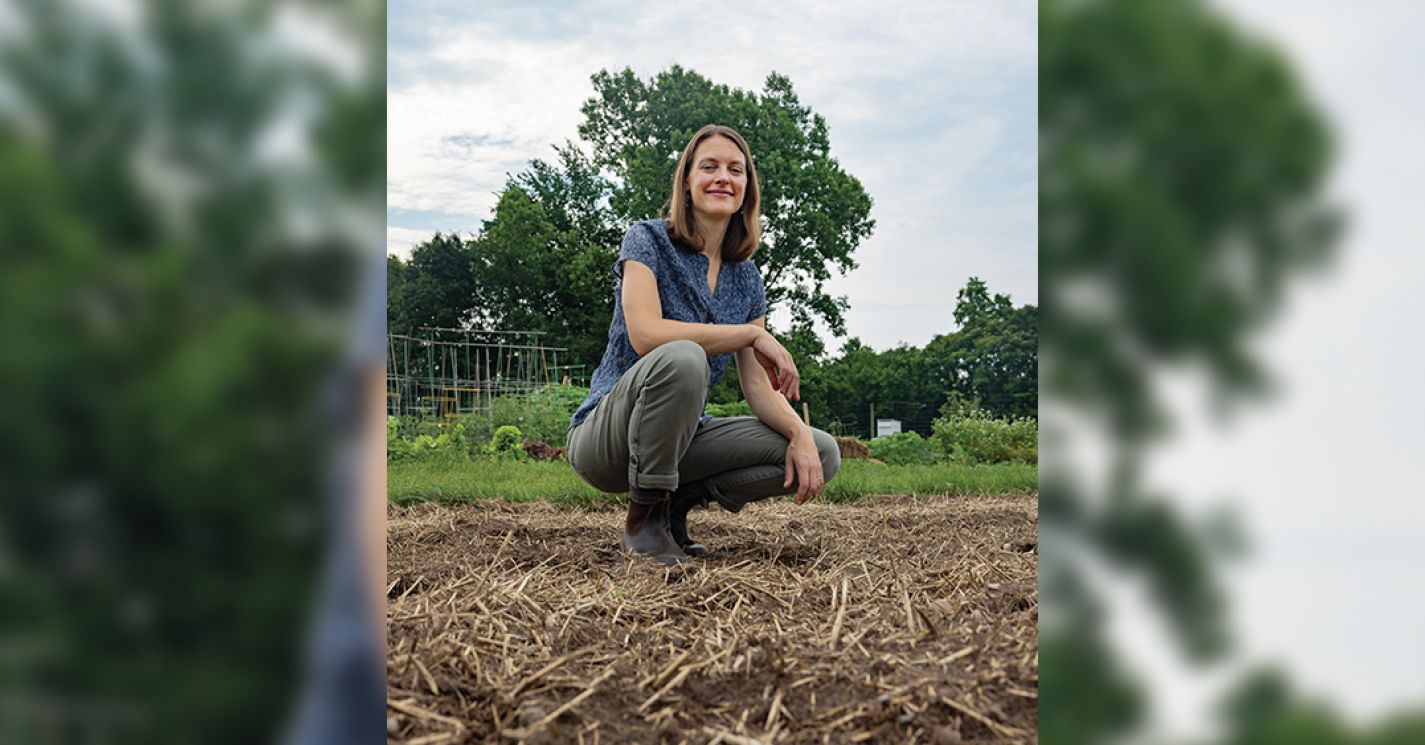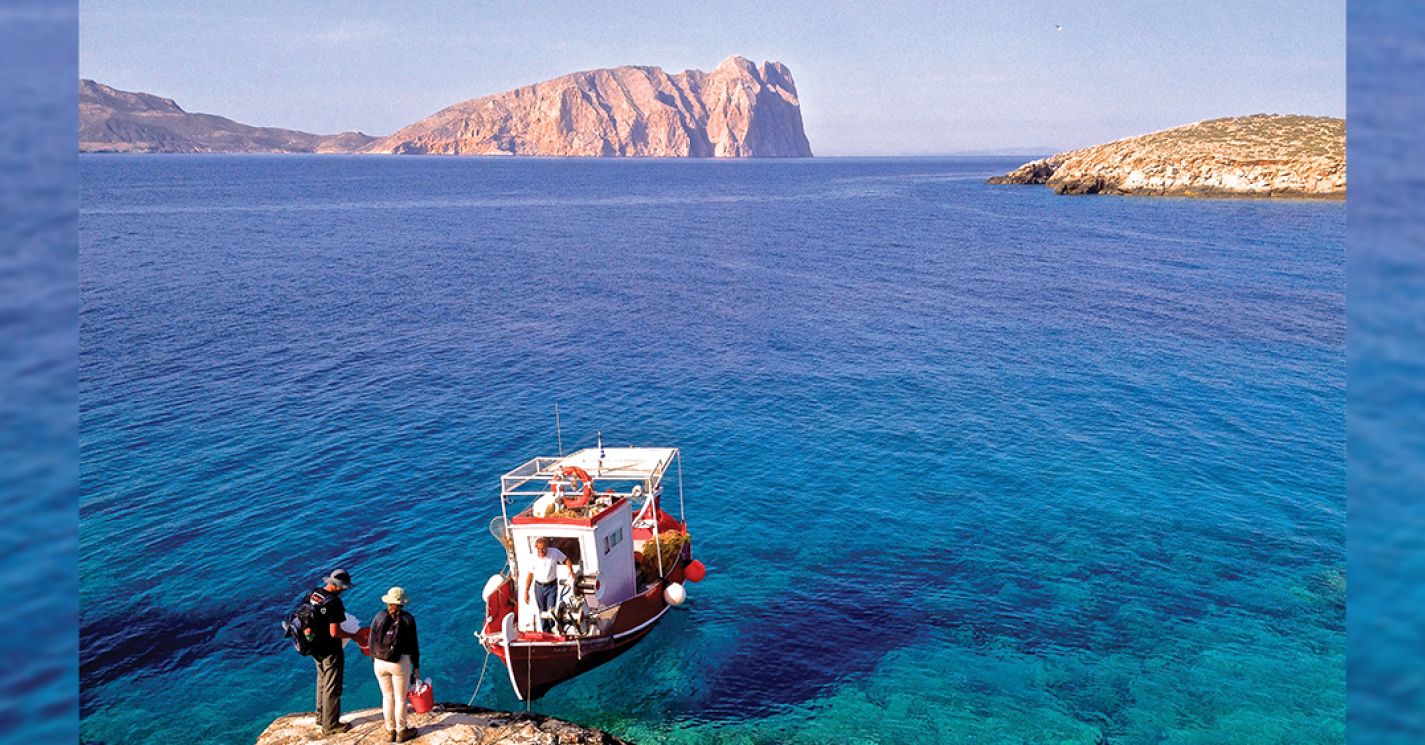FEATURE STORIES

"The Great Lakes University"
U-M is a major convener of Great Lakes research thanks to its interdisciplinary efforts to address climate change and other problems. SEAS is a microcosm of that work because of its Great Lakes research centers and institutes; collaborations with other U-M units; and expansive partnerships with organizations within Ann Arbor, the region, and spanning the U.S., Canada and other countries. What this means, according to SEAS Dean Jonathan Overpeck, is that U-M is well-positioned to be “The Great Lakes University.”

Meet the Future of Sustainable Food Systems: A Focus on Soil Health and Crop Diversity
Soil degradation threatens our ecosystems and climate, and thus the future of food access. To be sustainable, ecological processes will need to be managed using species diversity to sustain production and support important functions including restoring soil health, which is the focus of research being conducted by SEAS Associate Professor Jennifer Blesh alongside students and other collaborators.

Island Biology: “A Lot of Bang for Your Conservation Buck”
Islands offer boundless opportunities to inform basic ecological science and applied conservation biology, and are integral to protecting global biodiversity. For nearly a decade, SEAS Associate Professor Johannes Foufopoulos and his students have studied island biology to identify what endangers resident species and how biodiversity can be protected.

The Legacy of Bunyan Bryant
SEAS Professor Emeritus Bunyan Bryant, a pioneer in the field of environmental justice who helped to establish the nation’s first environmental justice program at the school, died in March 2024 from cancer. He was 89. Bryant shepherded and inspired countless social and racial justice advocates in his four decades at U-M. Former students share how he influenced them.
DANA SPHERE

10 Questions: Ayumi Fujisaki-Manome
Ayumi Fujisaki-Manome is an associate research scientist at the Cooperative Institute for Great Lakes Research, which is hosted by SEAS. Her research uses geophysical modeling to address the impacts of interactions between ice, oceans and lakes on larger-scale phenomena, such as weather, storm surges and sea/lake ice melting.

U-M Students Develop “Roadmap” to Clean, Equitable Power in Michigan
As Michigan works to achieve its clean energy and energy justice goals outlined in the MI Climate Action Plan, the traditional Investor-Owned Utility (IOU) model for providing electricity is often an obstacle to progress. In collaboration with the Michigan Climate Action Network and Michigan Environmental Justice Coalition, a group of U-M graduate students, including five from SEAS, recently published a comprehensive report about Michigan’s public power options.

Students Turn Fallen Campus Trees Into Public Tables
Storm-damaged trees from across U-M have been turned into new, functional furniture on campus. Students in Professor Joseph Trumpey’s Tree to Table class milled logs and worked with wood taken from trees on campus, including the legendary Tappan Oak.
ALUMNI UPDATES

Anna "Xan" Urso (MS ’21)
As the environmental equity program specialist at the Foundation for California Community Colleges, Xan Urso identifies where environmental justice fits into community impact programs and how students can be involved.

Alison Shereda (MS ’23)
Alison Shereda is utilizing the different perspectives she learned at SEAS in her role as a post master’s research associate in the Coastal Sciences Division at the Pacific Northwest National Laboratory, where she studies the social and ecological impacts of renewable energies.

Arman Golrokhian (MS/MPP '17)
Arman Golrokhian works as a clean energy transition advisor, a role that seemed unimaginable when he first landed in the U.S. One of the main things that made his trajectory possible was the SEAS alumni network, which he says made a major difference in navigating his career path.

Jena Brooker (BA '19)
Becoming a journalist wasn’t always the plan for Jena Brooker, the environment and food reporter for BridgeDetroit. Moving to Detroit after graduation, her first job was as a substitute teacher. When COVID hit and teaching moved online, she pursued freelance writing. By the following spring, Brooker was named the first Midwest fellow for Grist.

Inigo Peng (MS ’21)
As a staff data scientist at FlowWest in northern California, an organization that uses technology to find solutions to water and natural resources issues, Inigo Peng utilizes data integration, analytics and visualization tools on large government projects.

Megan Husted (MS '23)
An internship in the Office of Environmental Justice at the White House Council on Environmental Quality gave Megan Husted a peek into how the government can effect change. Now, she’s creating her own impact as special assistant in the Office of Electricity at the Department of Energy.

Fai Foen (MLA ’11)
Fai Foen is the director of green infrastructure at The Greening of Detroit, a nonprofit organization that enhances the quality of life for Detroiters by planting trees, repurposing the land to create green spaces, and helping communities rebuild their neighborhoods one lot at a time.

Kimberly Guo (MS ’21)
As a senior associate at Better World Group, an environmental, energy, climate, and conservation policy and advocacy firm, Kimberly Guo takes on projects that address park equity and natural resources, with a focus on conservation and environmental justice.

Ali Shakoor (MS ’14)
Ali Shakoor is completing his PhD at Wayne State University in Detroit, where he has been researching the effects of Microcystis exposure on the early-life history of walleye. A tournament fisherman who competes in Montana, South Dakota and the Upper Midwest, Shakoor also educates others about science and the ecosystem challenges facing the Great Lakes.

Dean's Letter
With SEAS leading the way, you can look to U-M for advancements in climate action. We’re tackling an expanding array of environmental crises—from climate change and biodiversity loss to food scarcity, water quality and sustainable transportation—by turning research into real-world engagement with tangible benefits.





